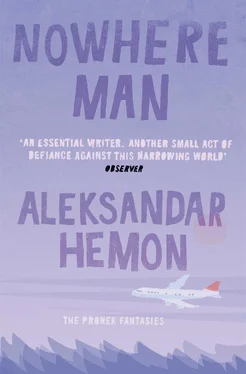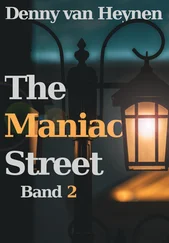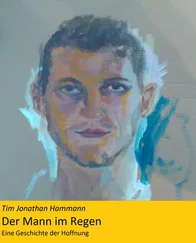MARIA
Outside the El station, a man with a black bowler hat was rattling his tambourine, out of any recognizable rhythm, singing a song about the spirit in the sky in a flat, disenchanted voice. The man smiled at me, showing dark gaps between his teeth. When I was a boy, spitting between your teeth was considered a great skill, because you could achieve precision, like those snakes in Survival spurting poison at terrified field mice, but my teeth were too close together, and I could never do it — after every attempt there would be some spit dripping off my chin.
The station smelled of urine and petroleum. A dreadlocked woman in a yellow vest rummaged through a closet with metal doors under the stairs, then took out a shovel and looked at it with surprise — she semed to have expected something else. I ascended with the escalator onto the platform, and waited there to see the train lights. The wind was rolling an empty can toward the edge — the can would stop, trying to resist the push, then roll again, until it finally fell over the edge. A mouse scurried between the rails. I expected it to be electrocuted on the third rail: a few sparks, a shrill squeal, a stiff, dun mouse, still surprised by the suddenness of the end.
“All we ask for,” said a young man, with his hands folded over his crotch, “is to give your life to Jesus Christ and follow him to the Kingdom of God.” His companion, wide-shouldered, bearded, walked through the train car offering everyone a brown bag of peanuts and salvation. An old lady with a plastic wrap on her bloated gray hair grinned abruptly, as if a shot of pain went through her body at that very instant. A wizened old man, wearing a grimace of perplexed horror, and a sallow straw fedora, looked up at the peanut man. A young woman in front of me — a pointed tongue of hair touched her collar, and she smelled like cinnamon and milk — was reading the paper. DEFENSES COLLAPSE IN GORAZDE, a headline read. I had been in Goražde only once, only because I had vomited in the car, on our way somewhere, and my parents stopped in Goražde to clean the mess up. All I remembered was being thirsty and shivering on the front seat, as my father retched in the back seat, wiping it with a cloth; and then my father leaving my cloth-wrapped vomit by the road, and hungry, desperate little animals crawling out of the bushes to devour it. The woman gave a neatly creased dollar to the peanut man, took a bag from him and ripped it open, and then started crunching the nuts. I said: “No, thank you.” Granville, Loyola, Morse. The woman flipped the page, a few nutshells pitter-pattered on it. SUNNY SKIES WARM MOST OF NATION. We all disembarked from the train at Howard, leaving behind throngs of peanut shells, and a drunk in a Cubs hat, slumped in the dark corner.
—
There was something exhilarating and unsettling about going in the same direction with a mass of people. We gathered at the top of the escalator and then all descended; we went through sundry revolving bars, which patted us on the back, as if we had just come back from a dangerous mission. In the urine-scented shade of the station, buses were lined up in perfect perspective, sucking in passengers through the front doors. A weather-beaten sign on a Coke machine read NO WORKING; a torn poster on the wall behind it announced the yesteryear arrival of a circus with a half grin of a hysterical clown and an erect elephant trunk holding a wand with a bright star on its tip. I had never taught anything in my life, let alone English, but despair was my loyal ally.
I put my hands in the jacket pockets: a couple of marbles, a taper of lint, a coin, a transfer. I remember this trivial handful because I can recall looking at an old black lady: a peppered coat, a bell hat, her knuckles coiled around a cane handle, leaning slightly forward. To be able to put your hands in your pockets, I thought, was not such a bad thing, your pockets are your hands’ home.
There was a bench nobody was sitting on, encrusted with blotches. I looked up, and on a steel beam high up above perched a jury of pigeons, cooing peevishly. They bloated and deflated, blinking down on us, effortlessly releasing feces. When I was a kid, I thought that snow came from God shitting on us. The Touhy bus arrived, and we lined up at the bus door. I experienced an intense sneeze of happiness, simply because I had managed not to lose my transfer.
The bus smelled of an unknown disinfecting potion, a trace of sausagey sweat, and nondescript dust dryness. The jury of pigeons fluttered up as the bus moved forward, pressing us against our seats, until we all dutifully jerked forward. I used to have a friend — he was killed by an accelerating piece of shrapnel — who liked to think that there was a quiet part of the universe where a body could have a steady velocity, going in the same direction, at the same speed, never stopping or entering a gravitational field. This bus, for instance, would have moved with smooth, pleasant velocity, down Touhy, not stopping at the lights, on to Lincolnwood, Park Ridge, Elk Grove Village, Schaumburg, Hanover Park, and onward through Iowa and whatever there was beyond Iowa, all the way to California, and then over the Pacific, gliding across the endless water until we reached Shanghai — we would have all got to know one another on this ship, we would have gone all the way together.
The bus stopped abruptly at Western, the driver honking violently, then glancing at us in the rearview mirror. A man crossed the street in front of the bus, carrying a rolled-up carpet, which was breaking on his shoulder, its ends touching the ground. The man was sagging under the burden, his neck bent, his knees stooping, as if he were carrying a weighty cross.
We moved on, passed Inner Light Hair Sanctuary, AutoZone PartsWorld, Wultan Monuments, Land of Submarines; crossed California, gliding by Barnaby & Scribner Family Dining, Mt. Sinai Medical Center, Eastern Style Pizza — I got off the bus across the street from a Chinese restaurant. New World, it was called, and it was empty, only a sign in the window saying FOR LEASE.
I had a few more minutes before the interview, and I was not ready to go in and get a job (How could I teach anyone anything?), so I lingered in front of the photo shop next to New World. A sign in the window — thick black letters — read:
OLD PHOTOS COPIED
ANY SIZE
COLOR
OR
BLACK AND WHITE.
There was a photo of black-and-white miners, their eyes twinkling behind a mask of gray dust. They held their pickaxes solemnly, their helmets pressing down their faces. In another photo, three kids in knickers and jackets with sleeves that could not reach their wrists stood a step away from one another, with the same tenebrous eyes, shorn hair, and large ears spreading out like little wings.
There was a Before photo and an After photo: the Before photo showed a man with a long curly beard slowly swallowing his face and dark wrinkles above his murky eyes. He sat with his hands coiled in his lap. A younger man stood on his left, his right hand cautiously touching the old man’s shoulder. The upper right-hand corner of the photo was missing, including half of the young man’s yarmulke. Both men were cut by a jagged white line (the old man across his chest, the young man across his waist), with a trail of white blots spreading toward the old man’s beard — a crease and its offspring, created in somebody’s pocket. The After photo had no blots, had no crease, and the yarmulke was restored. Their faces were whiter, and the young man’s hand firmly grasped the old man’s shoulder — wherever they were now, they were in it together. If only I could afford to succumb to this depleting sorrow, to stop walking with my chin up, and just collapse, like a smashed box, things would be much simpler. There was a photo of the Lake-in-the-Hills Mall at night, all glaring neon blue, neon yellow, and neon pink.
Читать дальше












